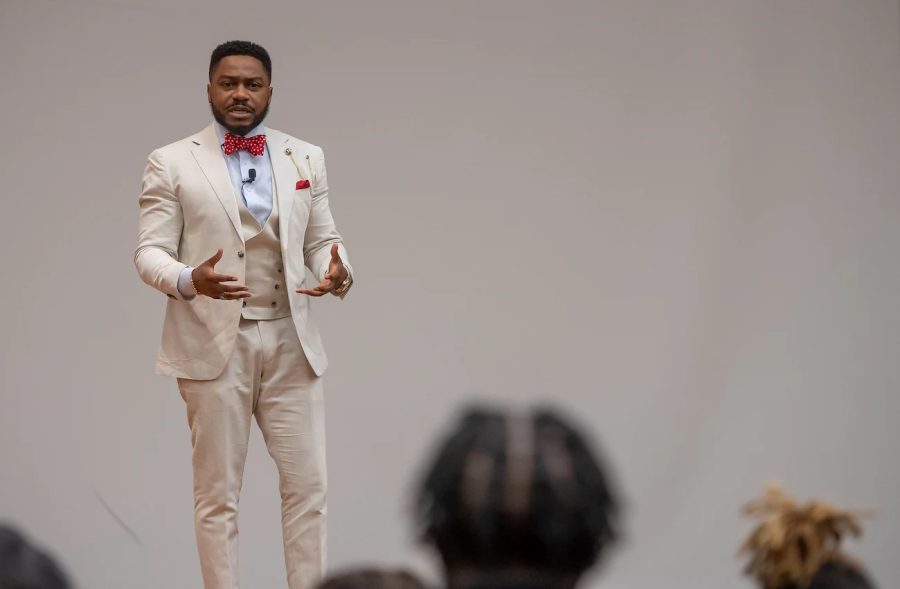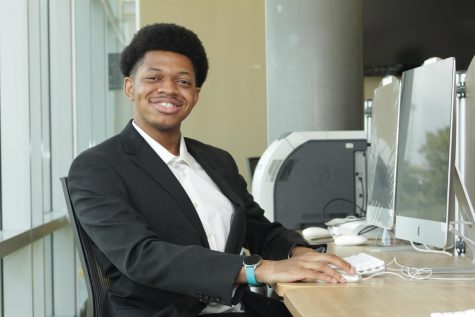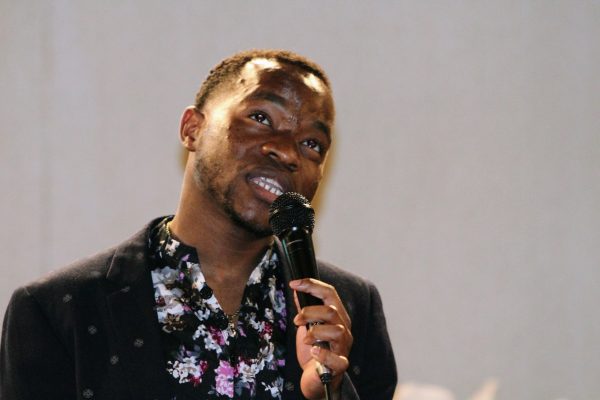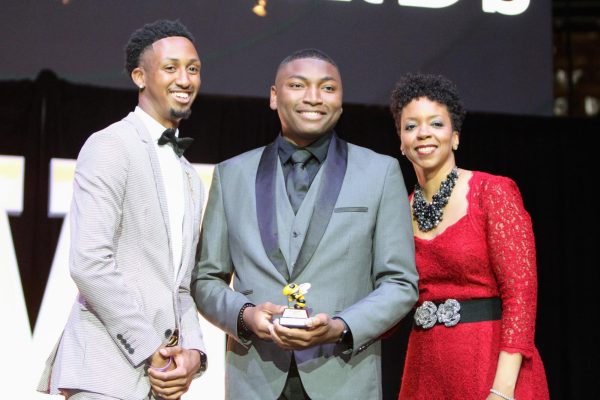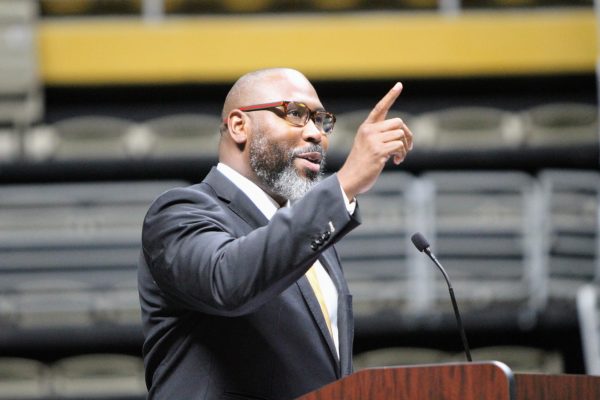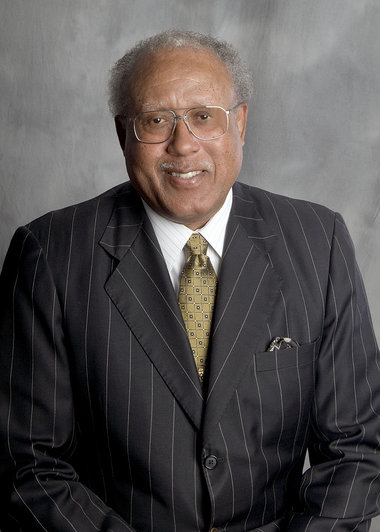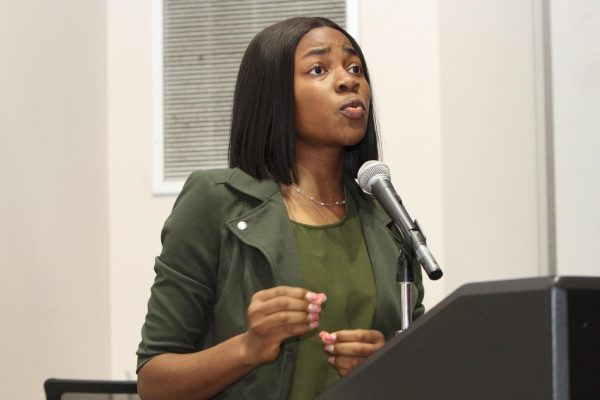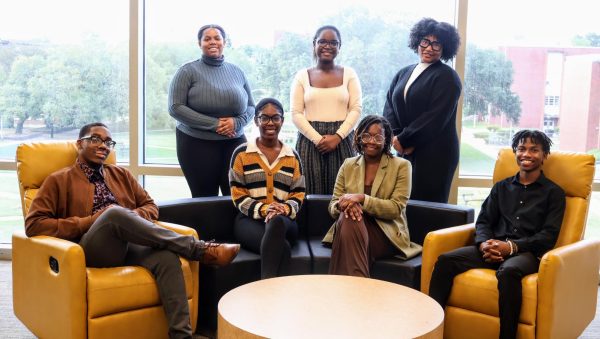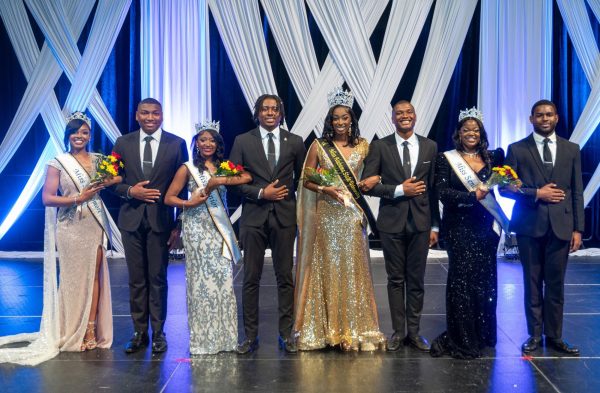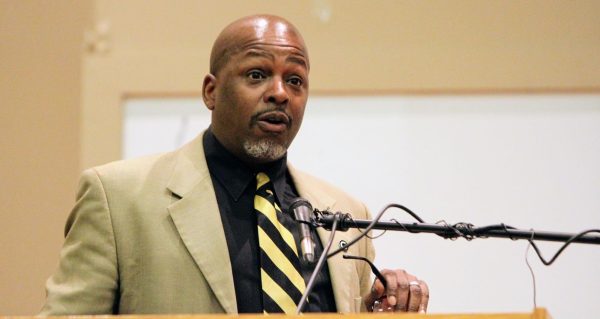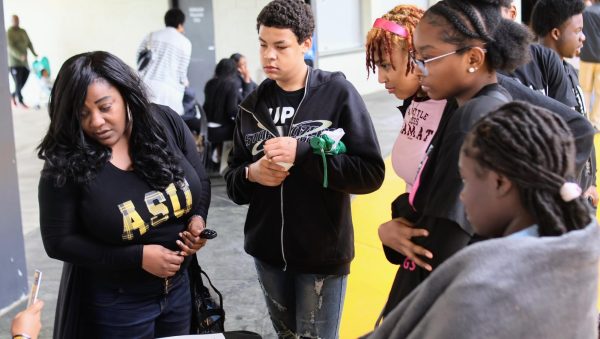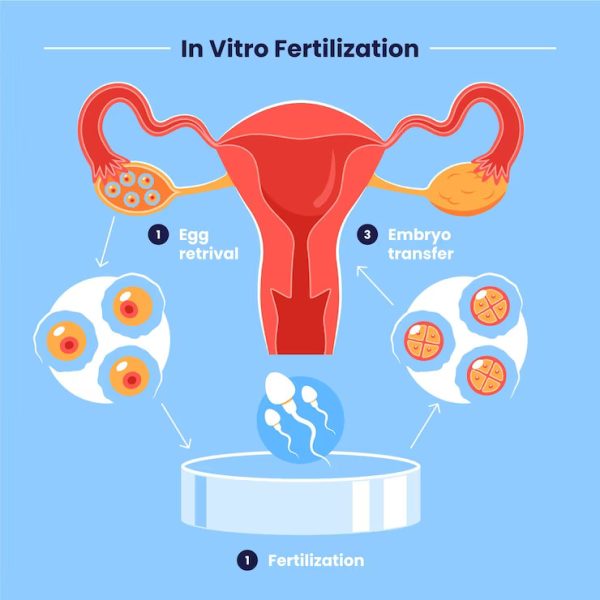Fleming delivers powerful message during President’s Student Leadership Summit
Assistant debate coach at Harvard University and keynote speaker for Alabama State University’s 1st annual Leadership Empowerment Summit, Brandon P. Fleming, gives a powerful speech to the attendees.
April 16, 2022
The Abernathy Auditorium was filled with intrigued minds, open hearts and graceful smiles as Alabama State University hosted its first annual President’s Student Leadership Empowerment Summit with keynote speaker and assistant debate coach at Harvard University Brandon P. Fleming on April 14 at 9 a.m.
Though a dark and gloomy morning, Fleming’s energetic, passionate and thunderous message starkly contrasted the outside elements. Several student leader organizations such as Student Orientation Services, Student Government Association, Golden Ambassadors and the Editor-in-Chief of The Hornet Tribune were present. The event was free and open to the public.
“Scholarship Meets Culture” was this year’s first theme, and summit facilitator and director of Career Services, Sabrina Crowder, Ph.D., provided ample details on why this event is beneficial and essential to the student body.
“Events like this one provide the foundation for academic excellence, leadership and a strong circle of connections,” Crowder said.
Some of the first students who attended this summit were granted the opportunity to receive a hardcover of Fleming’s new book named “Miseducated: A memoir.”
With no PowerPoint or presentation, Fleming walked on stage with just a lavalier mic and a strong personality to give the student body the trajectory of his childhood to the present day.
“I had an abusive stepfather who was a preacher in the morning and an abuser at night,” Fleming said.
After years of torment and nowhere to turn to, Fleming turned to the streets, where he became a drug dealer and a gang member at the age of 14. He mentioned to the audience that the streets were the only place he felt accepted him as he despised administrators and educators.
Fleming eventually graduated from high school with the hopes of becoming a basketball player to fulfill his dream to make it out of the hood. He attended Liberty University on a basketball scholarship but then lost the one thing that motivated him – basketball. Fleming tore his popliteus, which prohibited him from being on the basketball team. He dropped out of the institution and started working at a vitamin assembly line factory at 18.
“The factory was a dystopia,” Fleming said. “No one smiled, no one laughed…I would start on one end of the machine, and there was a towering stack of vitamins to put into the machine. I eventually fell behind by trying to distract myself from these 10-hour shifts and made a huge mess.”
Fleming was reprimanded by his boss where he described her as Tyler Perry’s “Madea” in the way she carried herself. Through this interaction with his boss, he realized that working at the factory was not the life for him and decided to re-enroll at Liberty University.
Fleming still felt out of place returning to Liberty as he only had a middle school reading level. However, one event changed his pathway. Fleming plagiarized one of his English papers and was called into the office by his professor who was the first person in his life to not look past him but to see him fully as a human being first.
“I believe servant leadership is through empathy and love,” he said. “Without my professor sitting down, wanting to know my life story, and helping me succeed in her class, I wouldn’t be where I am today. She would take me to the library and help me learn to read about Frederick Douglas and Langston Hughes.”
It was at that moment that Fleming realized that Black people could be scholars.
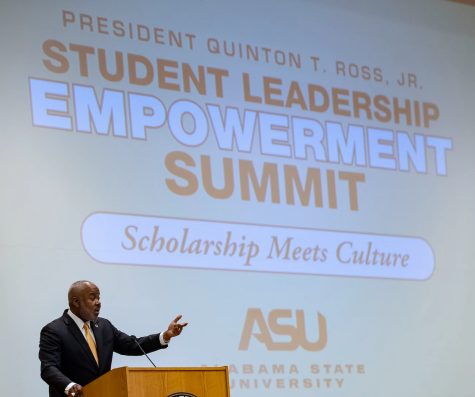
Fast-forward to 2017, with a B.A. in English, Fleming began coaching inner-city Atlanta middle school kids, where they won several debate competitions and awards. His victorious accomplishments gained the attention of Harvard University, where they recruited him to be an assistant debate coach.
“I walked around campus, and I noticed there was a lack of African American representation and it bothered me,” he said. “Every single year, 400 of the most gifted young scholars converge on campus to compete in an academic debate, but none of those students were Black. I realized that the answer had nothing to do with ability, but everything to do with access.”
Upset by the lack of diversity, Fleming talked to his boss about the importance of inclusivity and representation and to his surprise, his boss agreed, creating the Harvard Debate Council Diversity Project.
With this project, Fleming recruited several Black youths in Atlanta with no experience in debating and vigorously trained them up to prepare them for competition. He believed in a method of “meeting the students where they are” instead of trying to educate them on Plato, Aristotle and various other philosophers and academics that were unknown to them. Fleming tried to connect his teachings to whatever was relevant to his students.
As Fleming’s first cohort of students entered the national Harvard Debate Competition, they triumphed, beating out several kids with better access to a high-quality education. Though triumphant, several people were skeptical and thought his first win was a fluke. So to prove them wrong, Fleming decided to reenter with a brand new cohort.
Since its 2017 inception, Fleming has won the national Harvard Debate Competition every year.
Fleming was named Forbes 30 Under 30 in 2020.
The summit included various other speakers, including 2021-2022 SGA President Gem Richardson, Derrick Brewster, Ed.D., vice president of student affairs, Tanjula Petty, Ed.D., assistant provost for student success and special initiatives, and Samrakshyak Bajracharya and Kalenzia Boddie, ASU honor students and Strada Scholars.
Quinton T. Ross Jr., Ed.D., concluded the summit by providing a message to the student body on why the university is the best place to attend in the world.
“Without the good Lord, my parents and Alabama State University, I would not be where I am today,” Ross said. “I hope through this summit you learned the five principles that this university instills: pride, integrity, impact, diversity, and loyalty… I usually try not to become emotional but Fleming’s message about loving first and leading second truly spoke to me. And so I want you all to go out into the world and represent Alabama State University to the fullest.”
Fleming held a book signing right outside of the auditorium at the conclusion of the summit.


